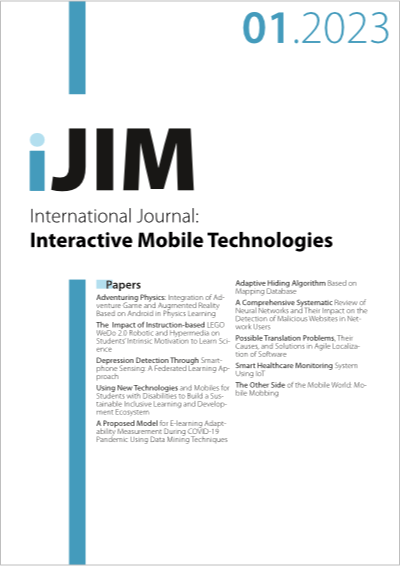The Impact of Instruction-based LEGO WeDo 2.0 Robotic and Hypermedia on Students’ Intrinsic Motivation to Learn Science
DOI:
https://doi.org/10.3991/ijim.v17i01.35663Keywords:
Robot, Hypermedia, motivation, Science, InstructionAbstract
Robots and hypermedia have been used as effective technological tools in the educational field. Despite their educational benefits, there are no studies investigating their impact on primary students’ intrinsic motivation in the field of science. For these reasons, the study aims to recognize the impact of employing LEGO WeDo 2.0 robotic and hypermedia on intrinsic motivation to learn science among primary students. The study implemented the quasi-experimental approach with a dual group design. The experimental group (n=25) was instructed on the force and motion topic using instruction-based LEGO WeDo 2.0 robotic and hypermedia, while the control group (n=25) was instructed using traditional instruction. The study conducted in Jordan involved fifty primary students. The data was gathered by administering the developed Intrinsic Motivation Towards Learning Science Scale to both groups at pre and post-points; ANCOVA analysis revealed a significant effect in favor of the experimental group in increasing intrinsic motivation to learn science at α = 0.05. These results recommend science instructors employ robots and hypermedia to foster students’ intrinsic motivation. It also encourages decision-makers in educational institutions to make decisions related to the science curriculum and its instructional methods.
Downloads
Published
How to Cite
Issue
Section
License
Copyright (c) 2022 Aseel O Ajlouni

This work is licensed under a Creative Commons Attribution 4.0 International License.



